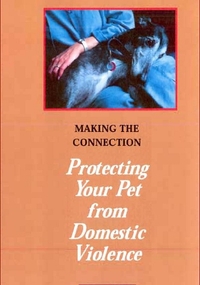'I FINALLY decided," said President Clinton, "to name the dog after my beloved uncle. I'm going to call the dog Buddy because of the importance of my uncle to my life." And so the memory of Henry Oren "Buddy" Grisham, a dog fancier who passed away last summer, will live on.
In a Labrador retriever.

I wish the Clintons much delight from their puppy (and extend my sympathies to the Secret Service agent who pulls the pooper-scooper detail). But does no one find it just a bit grotesque to memorialize a loved one by giving his name to an animal? Naming a child for a fondly remembered uncle is lovely, but a dog? And if an uncle, why not a nearer, dearer relative? Perhaps Clinton should have named his new pet Virginia in honor of his late mother. Wouldn't that have been a sweet tribute?
Calling an animal by a person's name used to be pretty widely regarded as an insult to that person. ("Here, Saddam! Here, boy!") That was because until recently, nearly everyone understood the difference between animals and humans: They are lesser creatures, devoid of soul or conscience. Animals might be loyal or fearless or beautiful, but rational men and women did not imagine that people and beasts should be equated, or that animal life and human life were on the same moral plane.
Now, increasingly, they do. Today millions of Americans so anthropomorphize animals that they have come to see human beings and other living creatures as fundamentally alike, different in species but equally — repeat, equally — entitled to affection, care, and respect. More and more, animals are thought of as creatures that love, feel, and suffer exactly as we do — and therefore as creatures whose love, feeling, and suffering deserve no less deference than ours.
When Christopher Reeve was paralyzed in a riding accident, Bill Maher, the host of ABC's talk show "Politically Incorrect," declared that Reeve deserved what he got.
"I took it as animal abuse," Maher said. "Most people go, 'Are you kidding? Horseback riding is horseback riding.' Well, you know, at one point people said the same thing about slavery: 'What do you mean, it's slavery? Of course we own them.' If you try to make a horse jump over something that it doesn't want to jump over, I think it really should throw you off its back."
This is a long way from Black Beauty. To insist upon the humane treatment of animals is enlightened and decent. To root for the horse that throws and cripples its rider is morally twisted.
Sometimes the inability to distinguish properly between animals and humans is merely comical. Socks, the Clintons' cat, receives more than 200 letters a day, "as a consequence of which," The New Republic reported in 1995, "a fan club was instituted, with its own director, staffed by people who handle the correspondence and publish Socks's fan club letter." Socks gets so much mail that he has been assigned his own ZIP code (20500-0010). And for those who can't find a stamp, there is always the Socks Web site to write to.
One can laugh at adults who send mail to other people's animals. But it's not so funny when the Humane Society of the United States publishes what it calls "a guide for women who have pets and are seeking help in domestic violence situations." (Endangered women who don't have pets are of less concern to the Humane Society.)
"Our new guide," the society says, "is intended to reduce the risk for women and their pets in domestic violence situations." Note well: "the risk for women and their pets." There is no suggestion that one is more important or urgent than the other. Women at risk is as serious as pets at risk. Woman's life, pet's life: same value. You think I exaggerate? On the cover of the brochure — "Protecting Your Pet from Domestic Violence" — is a photo. Not of an animal. Of a woman. And how does the brochure begin? "Pets are part of the family in many American households." Not "like part of the family." Not "cherished by the family." To the Humane Society and countless Americans, pets are actual family members, as integral and adored as any other. Mom, Dad, Johnny, Suzy, Fido.
"I know how you feel," a friend of mine, grieving for an aunt to whom she had been very close, was told by her boss. "My cat recently died." He loved his cat. She loved her aunt. What's the difference?

The American Red Cross conducts pet lifesaving courses, which cover first aid and CPR. Nothing wrong with that; those who want to help a pet in distress ought to know how to do it. But when The Boston Globe reported on such classes earlier this year, it found that animal owners willing to give mouth-to-mouth to their dog would refuse to do so for a stranger.
" 'Absolutely not,' said Stan Heller, who has a bearded collie and a schnauzer he might try to save, but who would ignore a sick stranger. 'To put it bluntly, there's too much [expletive] out there.' "
Start viewing animals as morally equal to humans, and where do you end? Answer: With Ingrid Newkirk, national director of People for the Ethical Treatment of Animals (PETA), one of the nation's largest and richest animal-rights groups.
"Six million people died in concentration camps," Newkirk says. "But six billion broiler chickens will die this year in slaughterhouses." Make no mistake. She is serious.
(Jeff Jacoby is a columnist for The Boston Globe).
-- ## --
Follow Jeff Jacoby on Twitter.
"Like" Jeff Jacoby's columns on Facebook.
Want to read more Jeff Jacoby? Sign up for "Arguable," his free weekly email newsletter.

